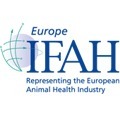 IFAH-Europe welcomes the publication of the European Commission’s “Guidelines for the prudent use of antimicrobials”. We recognise the importance of responsible use of antimicrobials, as is reflected in our longstanding support of the EPRUMA stakeholder platform, of which IFAH-Europe is a founding member. We are also a strong supporter of the European Surveillance Veterinary Antimicrobial Consumption (ESVAC) project. While Member States need to make decisions on responsible use based on their local agricultural and disease needs, co-ordination at the European level is essential to maximise their effectiveness.
IFAH-Europe welcomes the publication of the European Commission’s “Guidelines for the prudent use of antimicrobials”. We recognise the importance of responsible use of antimicrobials, as is reflected in our longstanding support of the EPRUMA stakeholder platform, of which IFAH-Europe is a founding member. We are also a strong supporter of the European Surveillance Veterinary Antimicrobial Consumption (ESVAC) project. While Member States need to make decisions on responsible use based on their local agricultural and disease needs, co-ordination at the European level is essential to maximise their effectiveness.
Europe’s animal health industry supports the principle ‘prevention is better than cure’, and the encouragement of good hygiene, biosecurity and good husbandry which will contribute to reducing the need for antimicrobials. However, the goal of responsible use is to come to a use of antimicrobials ‘as and when needed’ (as little as possible, as much as necessary); this does not automatically equate to a reduction of use in all situations.

Some national experiences have shown that simple reduction targets can lead to antimicrobials being used incorrectly (e.g. prescribed course not completed, lower dosages than prescribed given to keep records low), a risk the guidelines quite rightly highlight. This can be counter-productive to the real objective of reducing antimicrobial resistance (AMR) development, which involves correct use and the elimination of unnecessary use. Experience with introducing firm (political) reduction targets shows that initially the use of antimicrobials decreases, but often rises again due to unacceptable animal health and welfare issues because of changes in disease conditions which necessitate proper use on medical and ethical grounds.
We fully support the guidelines where they state that “responsible use of antimicrobials should lead to more rational and targeted use, thereby maximising the therapeutic effect and minimising the development of AMR”. The guidelines should therefore target cases when the need for use is undisputable, e.g. focus on using the best suited product, for the correct period of time, with the correct dosage and administration route.
In addition, IFAH-Europe is a supporter of the ESVAC project and believes good data on the use of antimicrobials is needed to support good decision-making. We also encourage Member States to monitor target animal pathogens, as well as the current Heads of Medicines Agency initiative to develop a Target Pathogen Monitoring Programme in Europe.
Some elements in the guidelines document do need some more work or clarification, such as better data protection and more support towards diagnostic laboratories, therefore we look forward to a constructive science-based decision-making process to promote the responsible use of antimicrobials for the benefit of both human and animal health and welfare.
September 28, 2015 - IFAH Europe


